‘Jalal and the Lake’: An interview with Hanna Usman
Hanna Usman, a Muslim-Filipina and proud Meranaw, is a distinguished lawyer hailing from Marawi City, Lanao del Sur. Her academic journey led her to Mindanao State University-Marawi where she obtained her BA in English, followed by earning her Juris Doctor degree from the esteemed Jose Maria College of Law in Davao City.
Passionate about her heritage, Hanna seeks to showcase the depth and richness of her culture and tradition through the medium of fiction. She is a staunch advocate for peace and environmental awareness, principles she believes are intrinsically tied to understanding one's culture and tradition.
When she is not immersed in her work, Hanna enjoys a diverse range of activities. She is a fan of Korean reality shows, loves exploring new coffee shops, and has a penchant for oat milk lattes. A food enthusiast, she has a soft spot for noodles and ice cream. She also appreciates the quiet allure of museums and finds solace in the pages of a good book.
Jalal and the Lake marks Hanna's debut in the literary world, a testament to her commitment to sharing her culture and advocating for environmental consciousness.
Sari-Sari Storybooks, an independent press based in California, recently held a series of book launches in Mindanao for their latest storybook, "Jalal and the Lake". This engaging tale was penned by Hanna and marks the fifth title in Sari-Sari's growing collection. The book's vivid and cinematic illustrations were crafted by Quezon City-based artist, Marianne Palita, and the translation was expertly handled by MSU Marawi Professor Sorhaila Latip-Yusoph.
Publisher Christina Newhard is a firm believer in the power of language diversity as a cornerstone of cultural identity. She advocates for children to embrace their native language, a sentiment she believes can have far-reaching societal impacts.
The narratives published by Sari-Sari Storybooks have found resonance with Filipino children both in the diaspora and in the Philippines. Through "Jalal", Newhard hopes to not only help Meranaw children connect with their heritage but also expand the understanding of Filipino identity for readers worldwide.
"Jalal" is the latest addition to Sari-Sari's series of regional Filipino stories for children, which includes tales in Ivatan, Cebuano, Chavacano, and Waray.
In an interview, author Hanna Usman shared her inspirations behind the storybook. She emphasized the importance of writing about Meranaw culture and tradition, as well as the crucial role of environmental conservation.
Yadu Karu: What inspired you to write Jalal and the Lake?
Hanna Usman: I enjoy sharing about Meranaw culture. I love discussing our dances, traditions, and crafts. Growing up, I heard many stories from my parents, which led me to think, 'What if I share our culture through these stories?'
I was also inspired by Exupery's book, 'Le Petit Prince.' I embraced the challenge of crafting a story from a child's perspective, striving to be free from biases and prejudices in my storytelling, much like how children view the world.
YK: How did your upbringing in Marawi City influence your decision to write a children's book focusing on Meranaw culture and traditions?
HU: We rarely know literature that talks about the Meranaw, the Muslims, and the people of Mindanao. Also, the Marawi Siege brought us to narratives of extremism, conflict, and the like. Being part of the minority, we always had to answer for the things we were not and things we did not do.
I have also joined different programs and used to receive questions like “Pinoy ka?” “Born and raised in Marawi?” or statements like “Ang galing mo naman mag Tagalog, parang di ka lumaki sa Mindanao.”
It felt like there was always a need for me to tell others that people from Mindanao can speak the Filipino language and that we have so much in common. That we are more than the war or the conflict as shown in the media.
YK: Winning a Meranaw story contest seven years ago was a significant step in your journey as an author. Can you share what that experience meant to you and how it shaped your career as a writer?
HU: When I was in high school, I have always loved writing, from essays to poetry. There were times I joined essay contests too. Some people tell me I can write and do more. However, I had doubts that my writing would reach or deserve a bigger platform, as my writing was only meant for me as an expression.
When I found Sari-Sari Storybooks, I dared to submit my story. That time, I convinced myself there was no harm in trying. After receiving that email from Sari-sari, it made me more confident, and thought that maybe some people would love to read what I write. I still have many more things to learn in writing. And winning Sari-sari, and being given a chance to publish a children’s story is a humbling experience for me.
YK: Could you elaborate on the central themes of your book, particularly the elements of nature, cultural heritage, and leadership?
HU: One of the current issues in the Philippines is its solid waste mismanagement. It is also one of the neglected issues in my community. I feel like there is a need to start over (or rather continue our fight on various environmental issues), to emphasize discussing these issues even from the point of view of children. This is an intergenerational responsibility thus, there is a need to address it, involving age groups and all stakeholders.
My reference to the lake is Lake Lanao. It is an ancient lake, and it can tell more stories. It bears the history of the people of the Lake. If Lake Lanao can speak, it will tell more stories and truth about our people. It would be nice to touch on the aspect of community, that there is always something powerful in communal efforts. I also want to share that Meranaws put weight on family values, close ties, and Bayanihan.
I touched on leadership as my personal view is that a true leader is influenced by his family values. We need to teach our children good values as they will bring this outside their homes. We need to teach them selflessness, we can teach them to seek happiness without forgetting our responsibility to our community and our environment.
YK: What are some of the challenges and opportunities of writing for the regional Filipino language(s)?
HU: Some of the challenges would include the inability to find the right audience for this, and finding publishers who will be interested in investing with such.
In our case, we noticed that the younger generation no longer uses Meranaw. The challenge comes in when we rarely find people who are familiar with the Meranaw language, which then brings us to the challenge of finding people who will be interested in reading materials written in Meranaw.
This challenge brings us to more opportunities, for writers and artists, to be innovative in their arts and crafts.
These days, writers can also do self-publication. Artists are given more platforms to present and offer their craft without seeking big publishers or media. They have an alternative.
YK: How do you hope your book will impact the Meranaw children and the Filipino audiences/readers in general?
HU: I hope that this ignites more Meranaw to write about our culture and tradition. This is also in the hope of preserving aspects, if not all, of the Meranaw culture.
I pray that the people of the Lake, the Meranaws will take good care of Lake Lanao, as this is a source of life for the community. I also hope that this inspires the younger generation to be good citizens and eventually be good leaders in their communities.
YK: Can you share more about the illustrator and translator involved in the creation of Jalal and the Lake? How did their contributions enhance the storytelling?
HU: Mariane Palita is the right illustrator for Jalal and The Lake. The details are fine-drawn. The Anime-style illustration is something that the younger children will like. It’s inviting. Meranaw colors are vibrant, which Mariane was able to capture.
The illustration brought life to the story’s playfulness, yet without giving up the moral lesson in it. Christina (founder of Sari-sari storybooks) and I made sure we looked at every page of illustration. The illustration helped in conveying the message of the story.
The presence of the translation adds to the emotion or gives the reader the idea that the story is set in a local setting.
YK: Your background includes a BA in English and a JD degree. How has your educational journey contributed to your storytelling and advocacy work?
HU: My background in BA English helped me in choosing the right words since the story is one for children.
My background in law also helped me in seeing the issues that are not only emerging but are already present. I can understand what is happening in reality while I aim to present these issues from the point of view of a child.
The Philippines has many laws yet the challenge is on the implementation or dissemination of said laws. The challenge also is how to download or translate the spirit of these laws to ordinary people. For example, there’s no point in creating many punitive laws when the people or the community don’t see its purpose and significance.
Before creating laws, it would also be nice to work hand in hand in increasing awareness of the many pressing issues in our society.
YK: You are passionate about promoting peace and environmental awareness. How do these advocacies play a role in your book, and what message do you hope to convey to young readers through Jalal and the Lake?
HU: I hope the people will remind themselves that cleaning the lake or other natural resources in our community is a shared responsibility. Many actions have to be done to achieve the common good. And we should engage the younger generation in building these values.
YK: What are some of the Islamic values that you want to share with your readers through your story?
HU: In Islam, we are taught to take care of our environment. Islam also teaches us to be mindful of our duty to our community including our obligation to protect the shared resources. This also means that we must think about the people around us especially if it involves some resources that are shared by the community.
I also want to share that Islam is a peaceful religion. Peace here does not only mean peace involving your relationship with other people. Islam is a way of life. This means that we are taught to attain peace with the environment, and peace with ourselves.
YK: Finally, could you provide some insights into what you hope to achieve with the book launches and the message you'd like to convey to your readers and the audience attending the event?
HU: In addition to advocating for the environment, I hope this book encourages more Meranaws to write about our culture, crafts, and traditions. I also hope it inspires younger children to develop a love for reading. May this book contribute to our collective efforts in creating a better world.
______
You can order Jalal and the Lake through this link.


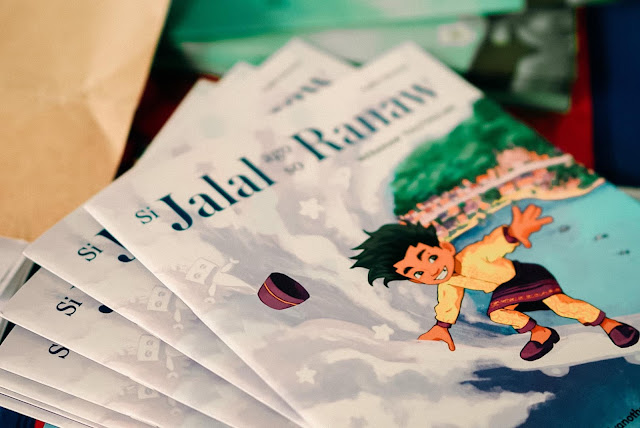


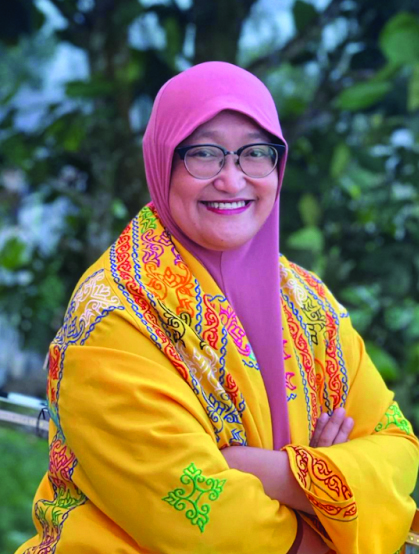

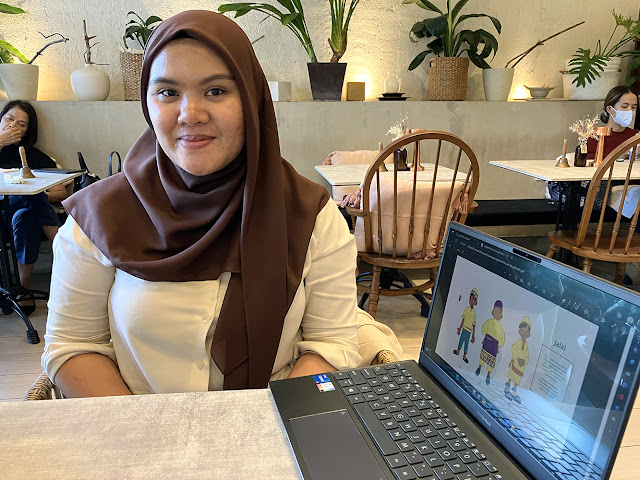
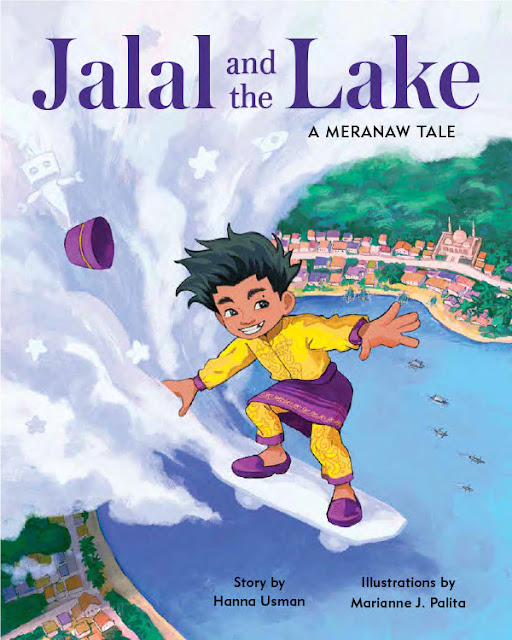
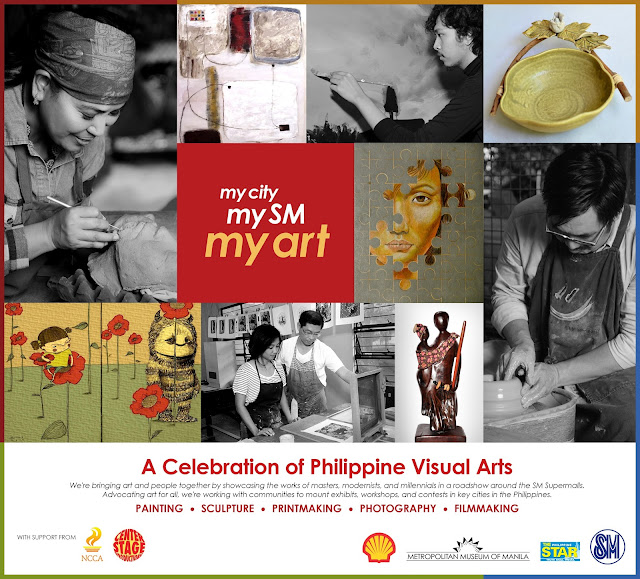
Comments
Post a Comment
The author encourages readers to post sensible comments in order to have meaningful discussions. Posting malicious, senseless and spam comments are highly discouraged.
Thank you for reading Yadu Karu's Blog.